Enculturation and Preservation
BY TAIGA GUTERRES | December 7, 2016
I wonder who will bake cassava* bread for us in times to come
I wonder who will speak with me in Garifuna in times to come
I wonder who will sing Aruumahani** songs with me in times to come
I wonder who will heal us with the dugu*** in times to come
The late Andy Palacio, a native of Belize, sang these words as he fought for the preservation of Garifuna music and culture.
As a volunteer, an outsider, merely living and working among the people of Belize for two years, the question has entered my head over and over – what does this look like for me? What is my place in cultural preservation?
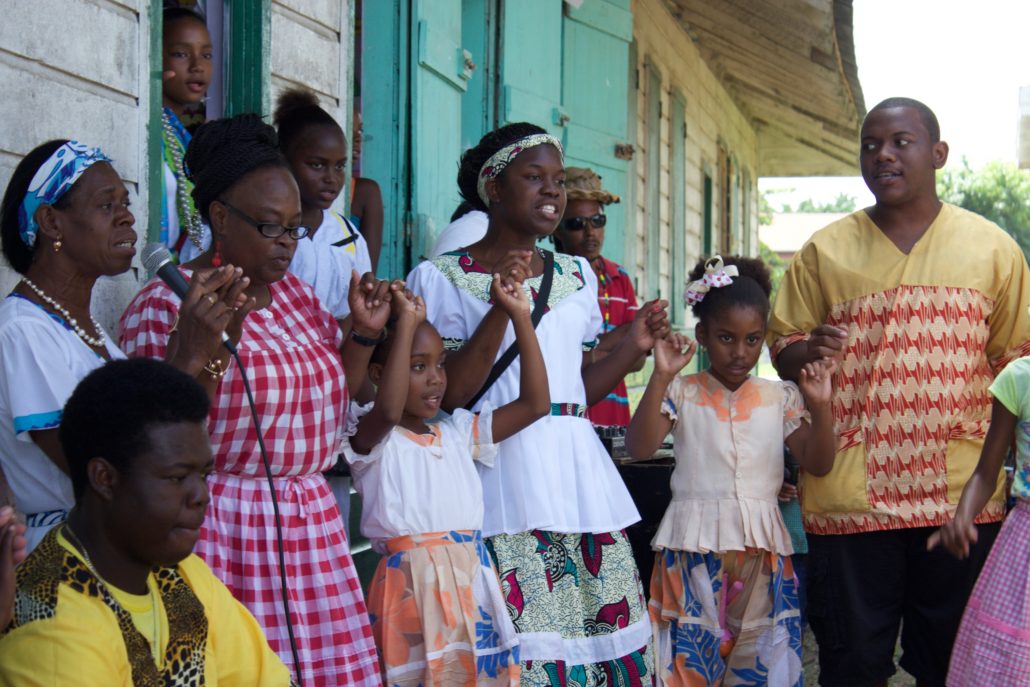
Students celebrate Culture Day at St. Peter Claver R.C. School in Punta Gorda, Belize.
In the efforts to learn from and be with people here, I find there is a certain push-and-pull between the enculturation and preservation of my own self. Having been born to Japanese and Portuguese parents living in the United States, I’ve always had a difficulty defining my culture. I find it much easier to identify the culture in the other than I do in myself. And while I’ve been taught to celebrate the cultures of all peoples, it can, a t times, be awkward to figure out how to do that in a way that honors and respects different cultural sensitivities–to both respect and celebrate the sacredness of culture.
Over the year and a half I’ve lived in the rural south of Belize, I’ve had the privilege of partaking in different celebrations of the diverse culture here: the Mayan deer dance, the battle of the drums, Garifuna Settlement Day, and Belizean Independence Day. As I continue to encounter these experiences, I find myself cherishing culture not just in the fireworks of celebrations, but also in the subtle steady candlelight of everyday living.
—
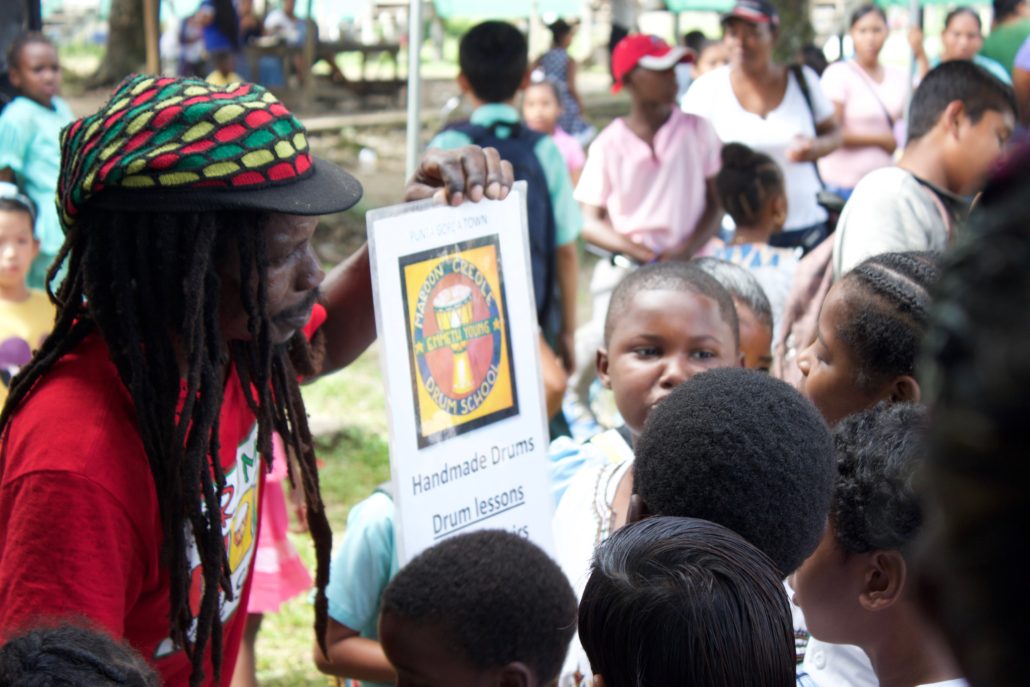
Emmeth Young, promoter of Drums Not Guns, invites young students to learn how to play and repair Garifuna drums.
I sit around a small table inside the home of one of our local youth leaders. A candlestick burning inside a glass cup is the only source of light. There is no electricity here in her village. Bowls of caldo and corn tortillas sit in the middle of the table. Between our conversations, the silence is filled only with the hum of nature and the occasional creaking that comes from a hammock in the next room.
So let me get this straight. You put your teeth under the pillow and then when you wake up there’s money? We always threw our teeth into the thatch roof!
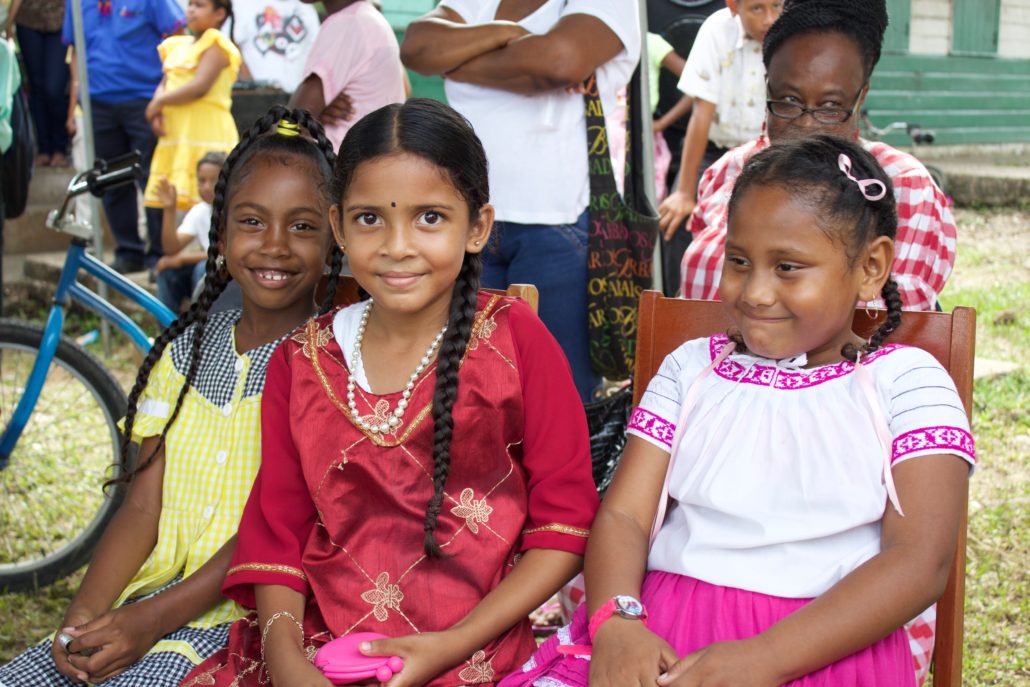
Students and teachers hold pinkies to sing the Our Father in Garifuna.
Laughter. Kinship. Suddenly, we both learn not just about each other, but also about ourselves. The rest of the night was spent sharing stories about what our mothers would tell us as kids. How the full moon was a big tortilla and how you clap outside towards her to learn to bake tortillas well. Not to play with your shadow or one day it won’t follow you anymore. To throw your baby teeth in the thatch roof or to place them under your pillow.
Stories are exchanged, traditions are shared, and through it all, we spark a new sense of awareness of our own cultures. We are brought back to ourselves. And while I still may not have a clear idea of what my place is in all of this, I can only hope to continue to the ebb and flow of enculturation and preservation – to come back to myself, yet again, and rediscover where I stand.
* Cassava bread is the staple food of the Garifuna and it is made from the cassava root.
** Aruumahani is a genre of Garifuna music in which men link their hands and sing a capella. It is a dying art form.
*** The dugu is the traditional Garifuna healing ceremony in which the extended family comes together to make offerings of food, drinks, music and dance to the ancestral spirits. It is presided over by a spiritual healer (buyei) and lasts for a few days.
#JVReflects explores the intersection of faith and justice from the perspective of JESUIT VOLUNTEERS serving as long-term volunteers both domestically and internationally with Jesuit Volunteer Corps and Jesuit Volunteer Corps Northwest. Reflections specifically focus on the cornerstone values of the Jesuit volunteer experience: spirituality, simple living, community, and social justice.
Taiga Guterres is a second-year Jesuit Volunteer who serves as a Retreat Minister in Punta Gorda, Belize. He is a graduate of Loyola Marymount University in Health and Human Science and is from San Marino, CA.

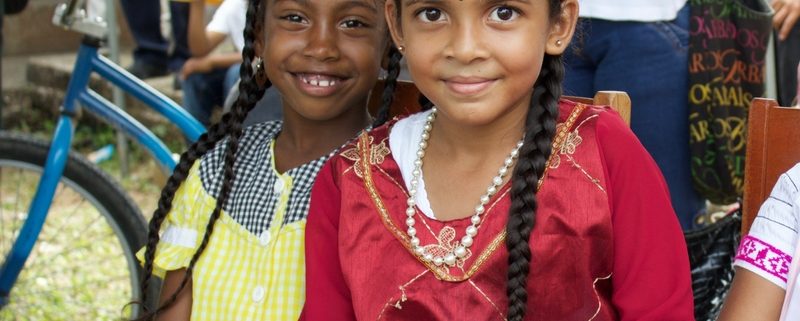
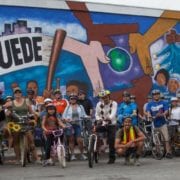

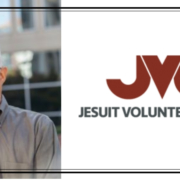
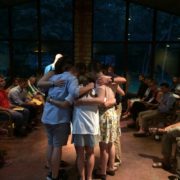
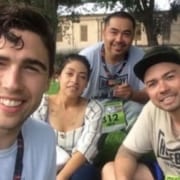
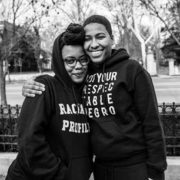



Trackbacks & Pingbacks
[…] Originally posted on the Ignatian Solidarity Network’s #JVReflects blog. […]
[…] By Taiga Guterres, Julian Cho House, Punta Gorda, Belize 15, Loyola Marymount University. Originally posted on the Ignatian Solidarity Network’s #JVReflects blog. […]
Leave a Reply
Want to join the discussion?Feel free to contribute!